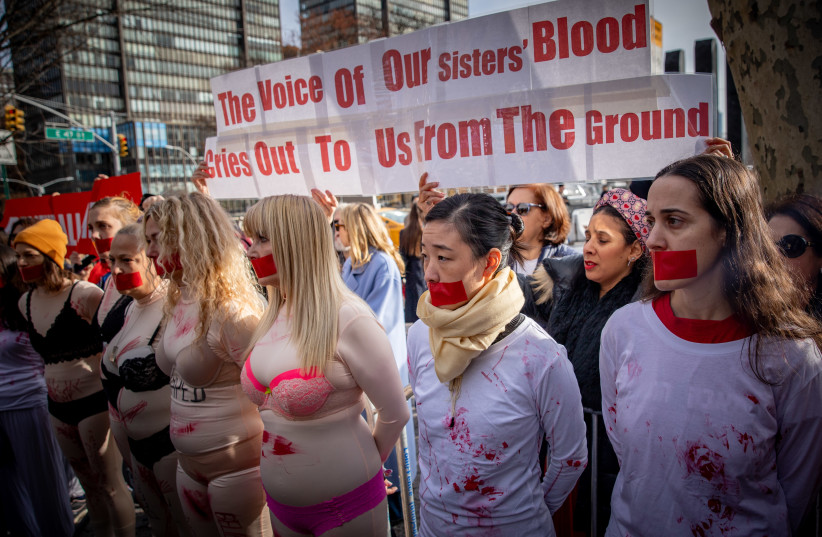One in four South Africans say that “rape can be justified as a means of attacking and weakening the enemy” during wartime, according to a new survey commissioned by the Women’s Action Campaign South Africa (WACSA) and carried out by Victory Research, a market research firm.
That same number say there is no need for the South African government to apply any pressure on international authorities to prosecute Hamas terrorists responsible for the rape, torture, and killing of citizens on October 7, and about 40% of South Africans believe that the reports Hamas raped Israelis during that attack are merely propaganda.
Asked what the consequences should be for “Hamas militants if they did rape, torture, and kill citizens,” only 60% of respondents— 65% of women and 55% of men— said that every international effort should be made to hold the perpetrators to account.
Another 6% went further, endorsing the statement “Israeli citizens are not innocent, they are complicit in their country’s behavior toward Palestinians over decades, and thus are responsible for what Hamas did to them.”
Interpretation of those numbers, however, is challenged by the fact that when asked if they were even aware of the organization called Hamas, a majority (56%) said no, and only a minority (40%) said they were aware of the attack on October 7.

The survey was conducted by telephone, and results were weighted to be representative of the entire South African population. It surveyed 808 people in total and reported a 3.5% margin of error.
Women's org says the results show 'deeply unsettling attitudes'
The respondents' skepticism stands in contrast to the findings by the UN's special envoy on sexual violence in conflict, who said in a report that there is “clear and convincing evidence” Hamas terrorists raped and sexually assaulted women during the October 7 attacks.
Those findings are supported by other investigations from the Association of Rape Crisis Centres in Israel and the International Humanitarian Law Centre, documenting the brutal use of sexual violence as a weapon of war.
In a statement publicizing the results of the survey, WACSA said that the study “reveals deeply unsettling attitudes and underscores the critical need for education, dialogue and accountability measures to protect all people from these horrific acts, regardless of gender, race, religion or politics.”
“WACSA believes that we should all speak out whenever people are raped, sexually assaulted, and abused, wherever they are – in Ukraine, Sudan, Syria, the DRC, Mozambique, or Israel,” the group added.
